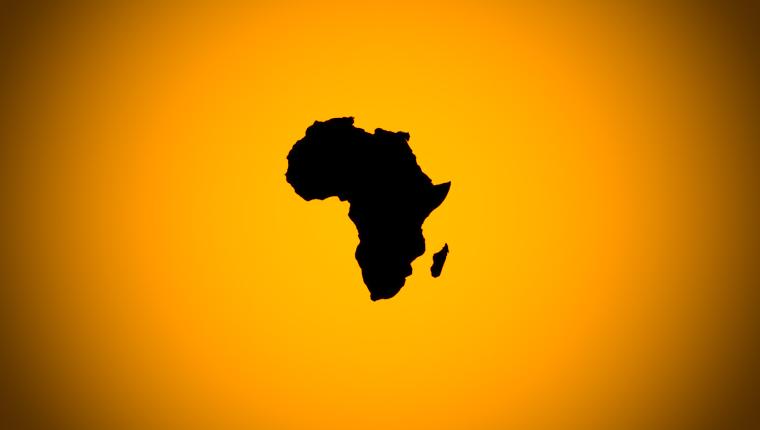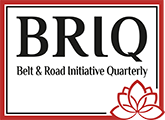
"BRIQ Belt and Road Initiative Journal" is pleased to announce the call for papers for its Spring 2024 issue on the theme "The Second Wave of Liberation Struggle in Africa and the New World Order." Africa, along with Asia, has emerged as a new center of gravity in our rapidly changing world. With its growing population, diverse needs, and abundant untapped resources, Africa is poised to play a significant role in shaping the global landscape. By the year 2100, projections indicate that Africa's population of 4.5 billion will account for 40% of the world's population, second only to Asia's 4.8 billion.
Africa is home to one-third of the world's Muslim population, highlighting the significant presence and influence of Islam on the continent. In particular, there exist profound historical connections between Türkiye and North Africa, forging a bond that extends beyond mere diplomatic alliances. Türkiye and the African continent share a deep sense of brotherhood rooted in a rich tapestry of shared history, blood ties, and cultural affinities. Moreover, the Arab states in North Africa serve as an additional bridge of solidarity and neighborliness, further strengthening the interconnectedness between these regions.
In recent years, Africa has witnessed a notable resurgence in the struggle for independence, marking the advent of a second wave of liberation. The initial anti-colonial movements, predominantly directed against imperial powers such as Britain and France, led to the attainment of state independence across the continent during the 1950s and 1960s. However, the late 1960s and 1970s saw the emergence of Western-backed military coups, impeding African nations' progress towards achieving economic autonomy, bolstering their national governments, establishing formidable armed forces, adopting national currencies, and promoting the use of indigenous languages.
During the 1980s, Africa's state-driven economies experienced deliberate dismantling through privatization initiatives propelled by neoliberal policies. In the subsequent decades of the 1990s and 2000s, imperialist powers took further measures to disrupt African nations. These actions involved instigating conflicts among different regions and tribes, fostering the emergence of separatist and jihadist terrorist organizations to create destabilizing corridors within African countries. Exploiting the resulting terrorism as a pretext, these powers established military bases, orchestrated coups, and orchestrated invasions.
Following the conclusion of the Second World War, African populations rose in rebellion against the colonial order. By the 1960s, numerous countries had achieved "state independence." Presently, the African continent, which had previously resisted colonialism, is engaged in a new wave of defiance against the long-standing neocolonial order that has persisted for six decades. Within African states, "Second Independence Wars" are unfolding, which revive the lecgacy of leaders such as Bumedyen, Sankara, Nkrumah, Keyta, Ture, and Burgiba, who inspired the unification of African peoples against neocolonialism after enduring years of counter-revolutionary rule. This collective struggle spans nations including Algeria, Tunisia, Mali, Burkina Faso, Ghana, Guinea, and numerous others.
In line with the global trend of multipolarization, there has been a discernible shift among formerly Atlantic-leaning governments and other political actors in Africa to distance themselves from the Atlantic front and align with the Asian camp. This realignment can be attributed to the economic opportunities fostered by the Belt and Road Initiative. Nearly all African nations, especially since 2016, have joined the "Belt and Road Initiative Partnership Memorandum." Previously, African Union states that were part of the "Non-Aligned Movement" in the 1960s have redirected their focus towards collaboration with Asia. This shift in alignment has led to conflicting stances between Atlantic and Eurasian powers regarding the resurgence of national states in the African continent. Africa has also drawn significant attention with its stance regarding the United Nations' votes against Russia.
Based on the framework depicted above, "BRIQ Belt and Road Initiative Journal" welcomes articles, essays, and book reviews in English, French, and Turkish on the following topics:
- Economic cooperation and potential joint projects between Türkiye and African nations, with a specific emphasis on industries, agriculture, and mining.
- Collaboration prospects among Türkiye, the People's Republic of China, the Russian Federation, and North African countries to address counterterrorism, foster development, and promote stability in Africa.
- Development opportunities in North, West, and Central African countries, and the possibilities that emerge within the Belt and Road Initiative, contrasting with Atlantic-centric approaches.
- The geopolitical implications resulting from cooperation between Russia and African nations.
- The global effects of cooperation between China and African countries.
Submission Guidelines
BRIQ (Belt & Road Initiative Quarterly) is a scholarly journal of international politics, economy, and culture.
Belt and Road Initiative Quarterly (BRIQ) features a broad range of content, from academic articles to book reviews, review essays, interviews, news reports, and feature articles.
The Editorial Board can issue calls for papers for special issues and invite authors to contribute manuscripts; however, it also welcomes unsolicited submissions.
Submissions are invited in English or Turkish. All submissions are to include a short biography (150-word limit) and should be sent as Microsoft Word attachments to briq@briqjournal.com . Articles or other content that have been previously published or are under review by other journals will not be considered for publication.
BRIQ follows American Psychology Association style (6th edition, https://www.apastyle.org) and uses American English spelling.
BRIQ uses a double-blind review process for all academic articles.
Academic articles should be between 5,000 and 9,000 words in length, including abstracts, notes, references, and all other content. Please supply a cover page that includes complete author information, and a fully anonymized manuscript that also contains an abstract (200- word limit) and 5 keywords.
Book reviews should not exceed 1,000 words; review essays covering two or more works can be up to 3,000 words.
News reports consisting of brief analyses of news developments should not exceed 1,500 words; feature articles combining reporting and analysis can be up to 3,500 words.
Please contact the Editorial Board for interview proposals.
